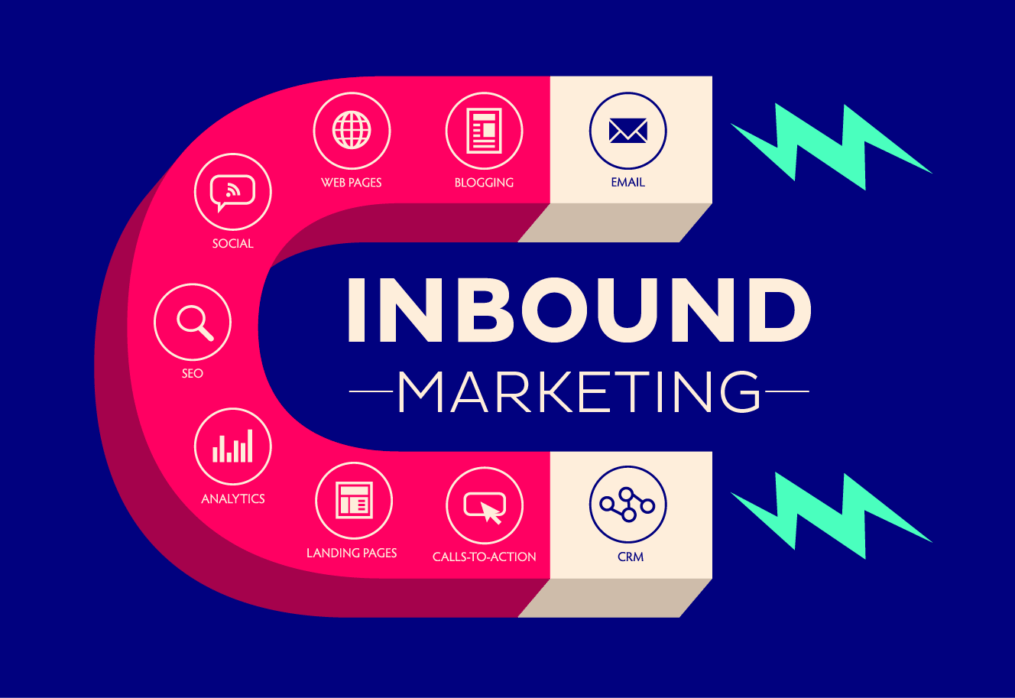Why is social media such an important part of inbound marketing
In the digital age, the world of marketing has undergone a profound transformation, and inbound marketing has emerged as a compelling approach to attracting, engaging, and delighting customers. At the heart of this revolution lies social media, a dynamic platform that has become an integral part of inbound marketing strategies. In this blog, we delve into the reasons why social media is a crucial component of inbound marketing, exploring its impact on brand visibility, lead generation, customer engagement, and overall business growth.
1. Amplifying Brand Visibility
Social media is an unparalleled tool for increasing brand visibility and awareness. With billions of active users across various platforms, it offers an immense opportunity to connect with a global audience. Through consistent and compelling content, businesses can create a strong brand presence and position themselves as industry thought leaders. Additionally, social media’s shareability factor enables content to reach wider audiences, potentially going viral and garnering significant attention within a short period.
2. Building Authentic Relationships
Inbound marketing revolves around building genuine relationships with potential customers, and social media excels in facilitating these connections. Brands can engage in conversations with their followers, responding to comments, messages, and mentions in real-time. This two-way communication fosters trust and loyalty, as customers feel valued when their concerns are addressed promptly. This aspect of social media encourages a sense of community, where customers become brand advocates and help spread positive word-of-mouth.
3. Driving Quality Traffic
Social media channels act as valuable referral sources for website traffic. By sharing compelling content and strategically placed links, inbound marketers can drive interested users directly to their websites. Moreover, social media platforms offer highly targeted advertising options, allowing businesses to reach their ideal audience based on demographics, interests, and behaviors. This precision targeting increases the likelihood of attracting relevant leads, thereby improving conversion rates.
4. Enhancing Lead Generation
Inbound marketing aims to attract and convert potential customers, and social media plays a critical role in this process. Through well-crafted lead magnets, such as ebooks, webinars, or free trials, brands can entice social media users to share their contact information willingly. Additionally, social media contests and giveaways incentivize engagement and create a buzz around a brand, resulting in a higher volume of leads.

5. Leveraging User-Generated Content
User-generated content (UGC) has emerged as a powerful tool for building trust and authenticity. Social media platforms serve as ideal arenas for customers to share their experiences, reviews, and testimonials. Featuring UGC in marketing campaigns humanizes the brand and demonstrates its value to potential customers. This peer-to-peer endorsement reinforces the credibility of a brand and influences the purchase decisions of others.
6. Tracking and Analyzing Performance
Inbound marketing relies heavily on data-driven decision-making, and social media provides a wealth of analytics and insights. Platforms like Facebook Insights, Twitter Analytics, and Instagram Insights offer detailed information about audience demographics, engagement metrics, and content performance. Armed with this data, marketers can fine-tune their strategies, focusing on what resonates best with their audience.
7. Nurturing Long-Term Customer Relationships
Customer retention is vital for sustainable business growth, and social media aids in nurturing long-term customer relationships. Brands can maintain engagement with existing customers by providing valuable content, exclusive offers, and personalized support. Moreover, social media serves as an avenue for proactive customer service, allowing businesses to address issues promptly and prevent potential crises.
Conclusion
Inbound marketing has transformed the way businesses connect with their audience, and social media has emerged as a powerful ally in this journey. Through increased brand visibility, authentic relationship-building, quality traffic generation, enhanced lead acquisition, and leveraging user-generated content, social media plays an instrumental role in driving business growth. By continuously analyzing performance metrics and nurturing long-term customer relationships, social media empowers marketers to adapt and evolve their strategies, ensuring success in an ever-changing digital landscape. Embracing the potential of social media in inbound marketing is no longer optional; it is a fundamental necessity for any business seeking to thrive in the modern era.

